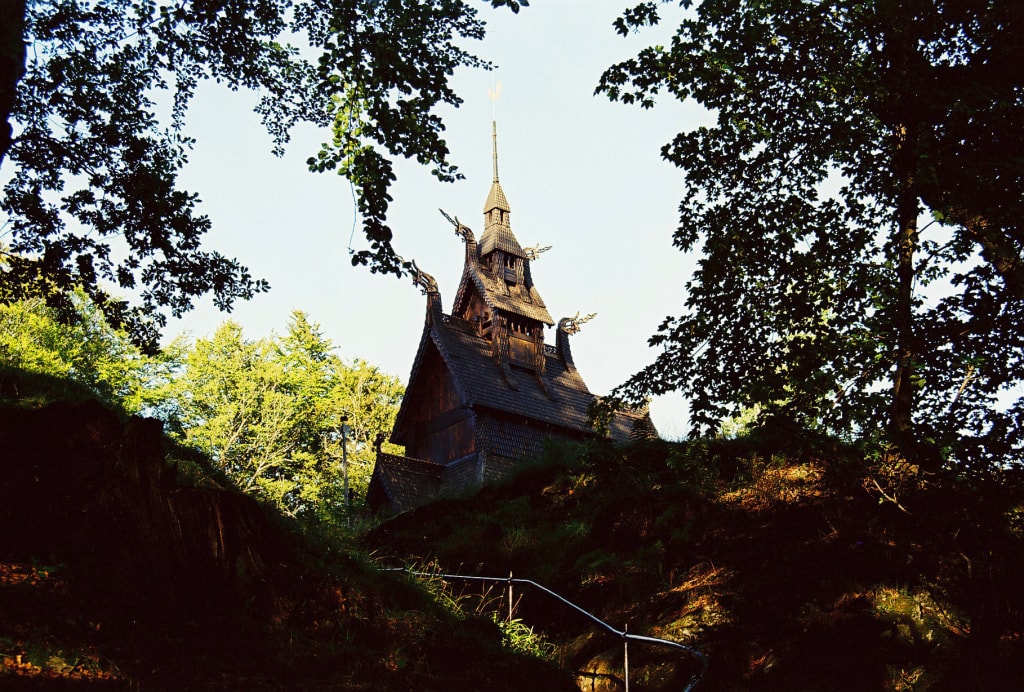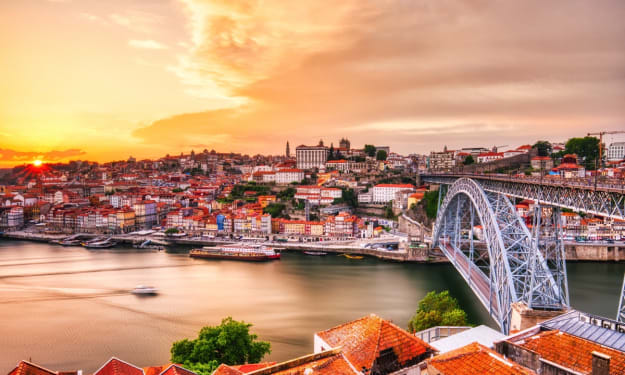The Vikings, Not Columbus, Were the First Europeans in the Americas
By About 500 Years or So

Think back to your elementary and high school days, and ask yourself: "Who discovered America?" You're probably hearing nursery rhymes about the Nina, the Pinta, and the Santa Maria already. You're thinking about how brave the explorers were to cross the vast expanse in their little ships in the 1400s, and about how funny it was they didn't know they weren't in India when they got to America. Well, add these up to all the other lies about Christopher Columbus, because they're wrong. Columbus was quite sure he wasn't in India, and he was also half a millennium late to the North America party. In case the discarded battle axes and rotting longboats weren't a clue, the Vikings had beaten him there by quite a stretch, as Cracked points out.
For those of you who don't know who the Vikings were (or the Norsemen, if you don't want to refer to the entire culture by a term that boils down to "pirate"), you should be ashamed of yourselves. The short version is that they were the Dark Age terror of the seas, raiders and plunderers as well as family men, explorers, and traders who covered Europe in raids that began in the eighth century. They eventually ranged from the far remnants of the Byzantine Empire (where they made up swaths of the Varangian Guard, which protected the emperor) all the way to, you guessed it, North America. North Carolina, if you want to be exact in how far south these men of the North made it. In fact, our red-headed heathens arrived right around 1000 A.D.
The True Reach of The Longship
The longer version, according to Eyewitness to History, is that Eric the Red left Scandinavia, and sailed west from Iceland until he found Greenland around the year 985 A.D. or thereabouts.
Now, the Vikings were known for their senses of humor, because Iceland was a great place to live with some good land, changing weather, and access to the sea so that men could fish or launch assaults on helpless monasteries to their hearts' content. Greenland, despite the name, was a horrible place wracked with freezing cold, rocky beaches, bad soil, and it was all-in-all a horrible place to live despite its massive size. And when you find yourself living in a place that you're sure doesn't want you there, especially if you have a longship and a crew, you leave and try to find some place better. That's what Leif Ericsson (the son of Eric the Red, in case the name wasn't a hint) did around the year 1000 A.D. What he found going west from Greenland was North America.
Now, for those who have been to Greenland, it makes you wonder why the Vikings would keep living there until the year 1500 (which is right around when that settlement decided to give up the ghost) once they'd found temperate climates and good land in America. Why wouldn't the Vikings have gathered their women, their goats, their swords and come to carve out a new life for themselves? Well, they did just that in the year 1005. They lasted approximately two years, give or take.
That shall be repeated. The Vikings, fierce pirates and bloodthirsty berserkers who populated the nightmares of every Dark Ages town and village that could so much as smell the ocean, left rich land and temperate climes in North America after only two years. The reason for that? No one's entirely sure, but it might have had something to do with all of the people already living there that really didn't want these European immigrants just sauntering in and dropping all of their property values.
How Did Native Americans Push The Vikings Out?
What most modern-day Americans don't seem to know is that the Native American population in America in general, and along the East Coast in particular, was massive. Accounts written 10 years before the Mayflower's landing in North America by sailors claimed you could smell the smoke from native bonfires up to 100 miles out to sea. Then, when the Pilgrims dropped anchor, the party seems to have moved on (as it always did when word came round that Puritans were showing up). That's because just before the "divine providence" that brought the pilgrims to Plymouth Rock, a massive plague swept through the native population, killing over 90 percent of the total populace. Now think back to the stories of how hard it was for the Europeans to resist the already-present native culture when they arrived, and the violence that marked their interactions with the native peoples when they got here. Now take away the Europeans' guns, and increase the native population astronomically. It's something of a miracle the Vikings lasted as long as they did in America, given those facts.
After the year 1007, the Viking colony on American soil was fairly well destroyed, and there wasn't much of a hope of getting it back up and running. But Vikings, being Vikings, did still raid the area for supplies; taking lumber and food back to Greenland where, had there been a native language, there would have been no words for these things. But they never tried to re-establish a toe hold on such rich land, and neither did any other white people until a few hundred years later.
Why Didn't We Learn About This in School?
So why didn't we hear about this in school? After all, anything involving bloodshed and pirates is sure to get kids' attentions, particularly kids who may already have been arguing the relative merits of a Viking v. Iroquois throw-down on the playground. Was it because modern Americans were embarrassed that it took the assistance of gunpowder and plague to even give them a shot at taking hold of the new land? Or was it that the Vikings already had enough history, what with bankrupting France's treasury and giving us our modern name for Russia (oh, and being partially responsible for the names of the days of the week)? Or was it that Columbus and his story of being the great explorer just played better into the white-washed, Euro-centric version of history?
Who can say, but the idea that Renaissance Europeans were the first ones to cross the ocean in tiny boats to try to take land and wealth from the peoples that already lived in the New World is just silly. After all, Europe's gold medalists at that sport had already given it a go before taking their boats and going home.
If you liked this interesting glimpse into history, check out my full Vocal archive to see what other time periods I've covered!
About the Creator
Neal Litherland
Neal Litherland is an author, freelance blogger, and RPG designer. A regular on the Chicago convention circuit, he works in a variety of genres.
Blog: Improved Initiative and The Literary Mercenary







Comments
There are no comments for this story
Be the first to respond and start the conversation.